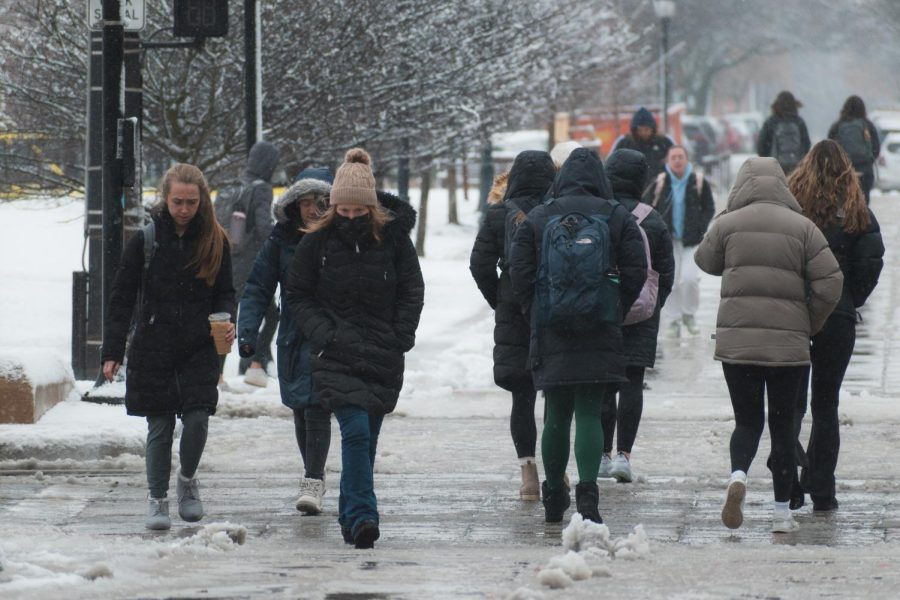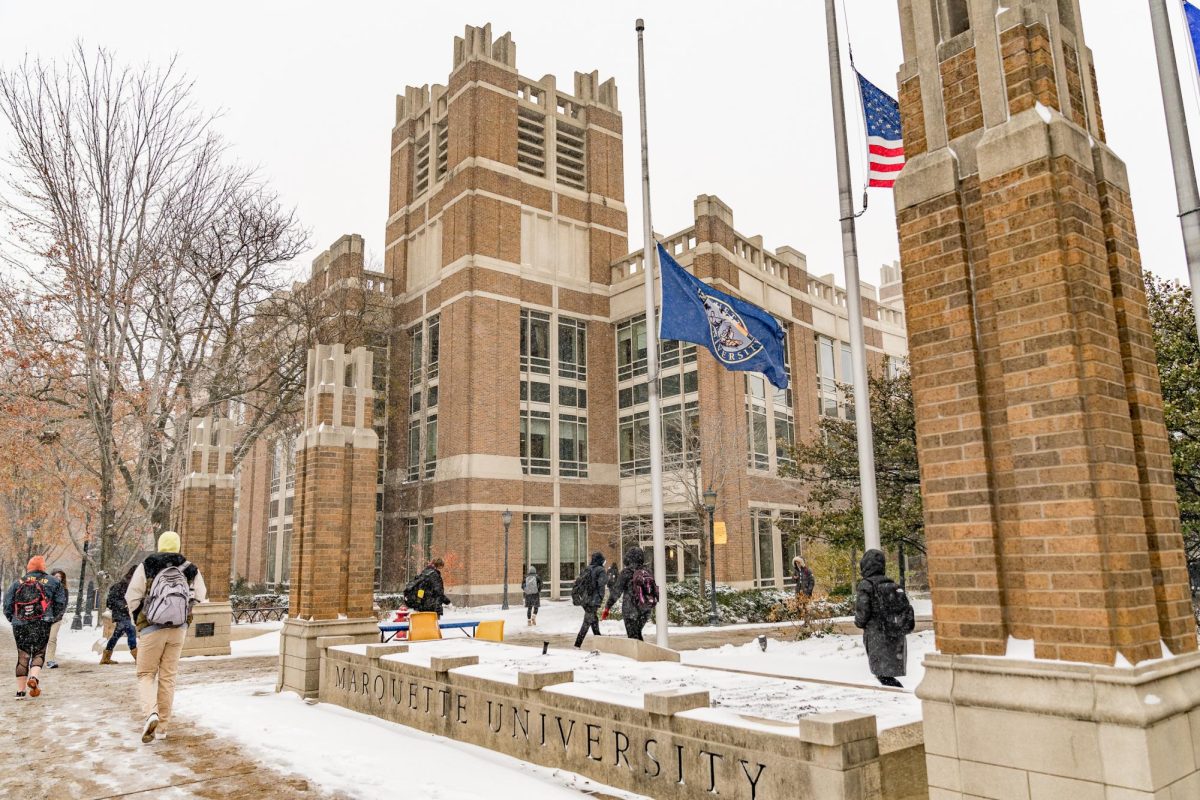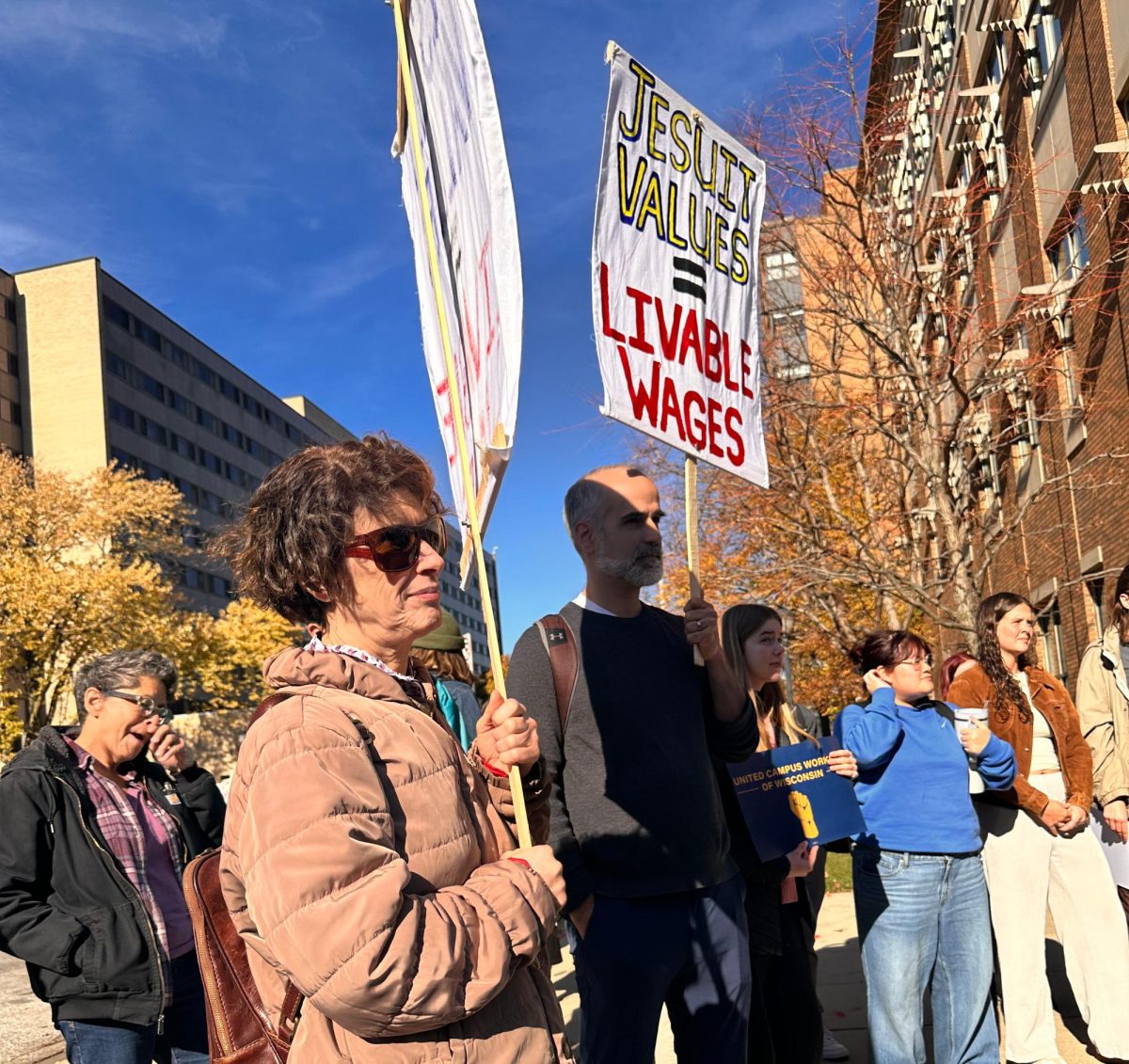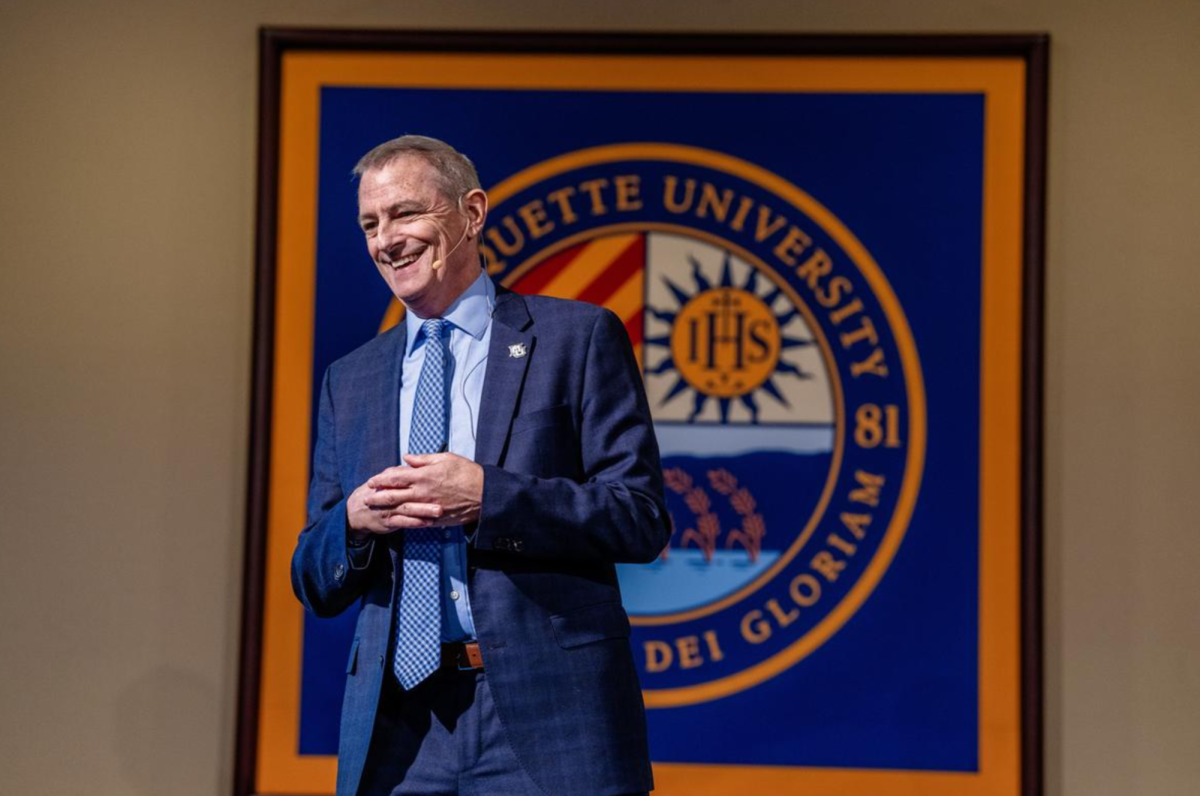In its monthly meeting yesterday, the University Academic Senate voted on important motions concerning the extension of benefits to domestic partners of university employees and the inclusion of senate members in meetings held by university higher-ups.
The first motion concerned “legally domiciled adults,” the domestic partners of Marquette faculty, staff and administrators, and their university-funded benefits.
Marquette currently extends benefits to spouses, dependent children and those “faculty and staff who reside in domestic partnership arrangements not defined by marriage are therefore not eligible for benefits,” according to a report done by Lisa Hanson, an associate professor of nursing.
While there was some discussion over the definition of “legally domiciled adults” and the overall cost to the university of extending more benefits, the motion passed.
The motion asks University President the Rev. Robert A. Wild to put such measures in place by the start of the 2011-’12 academic year.
Senate chair Christine Kreuger, an associate professor of English, clarified concerns of some senate members about the wording of the motion and whether it was intended as an order to Wild.
“What comes out of the UAS is not a command,” Kreuger said. “The UAS is an advisory body.”
The other motion that was voted upon was the request to include the senate chair and vice-chair in dean council meetings, the University Leadership Council and meetings held by the Board of Trustees.
Again, Kreuger clarified the motive of the request as being in the interest of shared governance.
“This isn’t about more power or more votes,” Kreuger said. “It’s all about communication and the principles of shared governance.”
The senate was also asked to consider drafting a statement on collegiality, the relationship between colleagues. Kreuger said there was no recent incident that prompted the questions, but rather a precaution since the senate does not currently have one.
Provost John Pauly said any such statement would not be legally binding or include punishments for offenses.
“We’re trying to come to something that isn’t very legalistic in nature,” Pauly said. “Rather, it’s about setting down principles and ideals of good behavior between colleagues in an academic community that really values free speech.”







